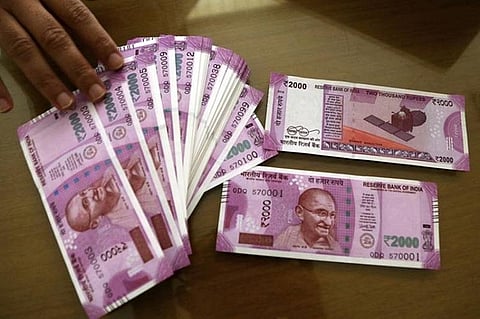

The controversy over electoral bonds has resurfaced, this time after a five-part investigative series by Nitin Sethi that was published in HuffPost India. The series alleged that the government lied, bent rules and repeatedly ignored objections raised by various stakeholders.
To demand answers, the Congress protested at the Parliament’s Gandhi Statue on Friday/ The party’s MP’s have been demanding that the ruling BJP government — especially Prime Minister Narendra Modi — break the silence over the issue.
What are electoral bonds?
Electoral bonds, a type of bearer bond instrument through which companies can give funds to political parties, were announced with much pomp during the 2017 Union Budget, and then passed into law with the Finance Bill 2017. Amendments were made to the Reserve Bank of India Act 1934, Representation of Peoples Act 1951, Income Tax Act 1961 and Companies Act. Following this, the scheme was notified in January 2018.
Bearer bonds are known to be untraceable. The electoral bond is interest-free. Whoever wishes can get one from the State Bank of India, issue one to a political party, and the party has to cash it within 15 days. Bondholders donating to political parties, however, remain anonymous.
Due to this, although the government said it was done to make funding more transparent, funding became more hidden. Companies, too, don’t have to reveal which parties they have given money to.
The electoral bonds can be purchased in January, April, July and October for 10 days. It can be 30 days in a year where there is a general election.
Why they are controversial
Electoral bonds were challenged in the Supreme Court, where the petitioners sought a stay on the scheme or some other transparent alternative for funding of political parties. The Supreme Court then reaffirmed that "government must be allowed a free hand to implement the measure in the execution of policies framed,” but asked for parties to disclose their funding to the court.
In 2017-18, the BJP received most of the funds from electoral bonds. In all the electoral bonds sold in the time that electoral bonds have been in existence, more than half of the value was sold in the two months prior to the Lok Sabha elections.
BJP claimed that this was done to reduce money laundering and make political funding more transparent, HuffPost’s reporting shows that this was not the case.
Here’s what you need to know about the controversy that has broken out now: